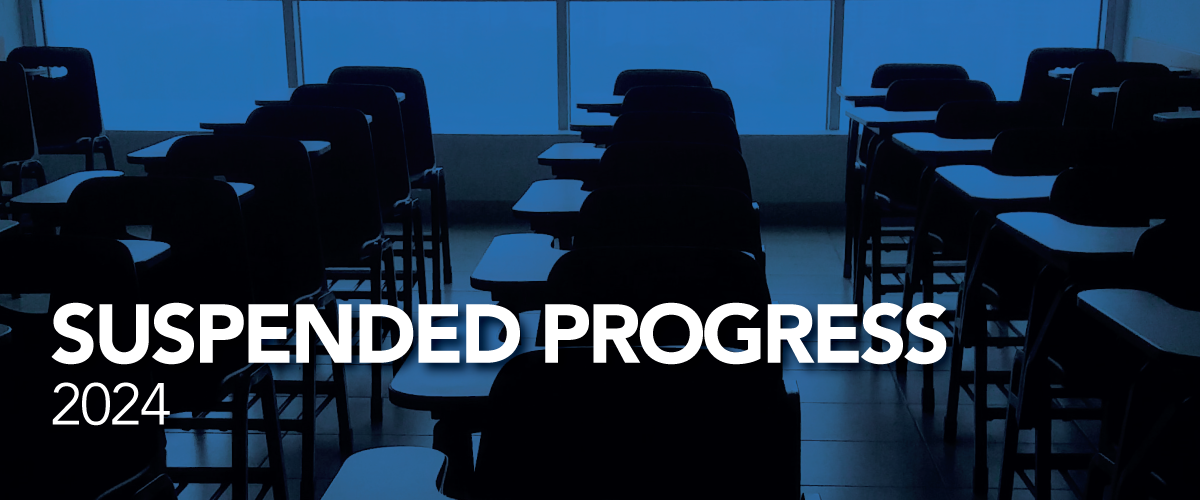
We wanted to share our most recent report, Suspended Progress 2024, analyzing new data that illuminates unsettling trends in suspensions and alternative placements in Virginia’s K-12 schools.
The report, an update of a series last published in 2018, finds that Black and disabled students continue to be disproportionally affected by these policies and makes recommendations on a better path forward.
Key findings in the report include:
- Students with disabilities and Black students remain disproportionately assigned to alternative educational placements.
- Black students make up less than a quarter of overall K-12 enrollment in Virginia but represent nearly half of the students in alternative placements.
- Students with disabilities—roughly 13% of Virginia’s K-12 population—received almost a quarter of all in-school and out-of-school suspensions.
- During the 2022-2023 school year in Virginia, students with disabilities received approximately 24% of all referrals to local law enforcement for school-based infractions, while they represent only approximately 13% of K-12 enrolment.
- To date, the Virginia Department of Education (VDOE) has not met its data reporting obligations. Without much needed information about the state of Virginia’s alternative educational placements, these disparities are difficult to resolve.
Right now, at the 2024 Virginia General Assembly, there are a number of bills that would help address these disparities and provide a better learning experience for Virginia’s young people.
These include bills that mandate the use of restorative discipline before students—in all but the most egregious cases—are excluded from school, increase the number of school-based counselors serving Virginia’s K-12 schools by reducing staffing ratios, and increase the number of specialized student support positions, like school social workers, school psychologists, school nurses, licensed behavior analysts, and licensed assistant behavior analysts.
Not all of these bills will pass this session, but our Youth Justice and Policy teams are hard at work helping to move these closer to the finish line while also fighting back against bills that could exacerbate the situation even further.
You can read the full report here.
Follow our social media to keep up with LAJC’s efforts at the legislative session (and stay tuned for an email update on our efforts at the mid-way point in session, known as “crossover”). Thank you for your support of this work.
